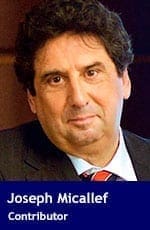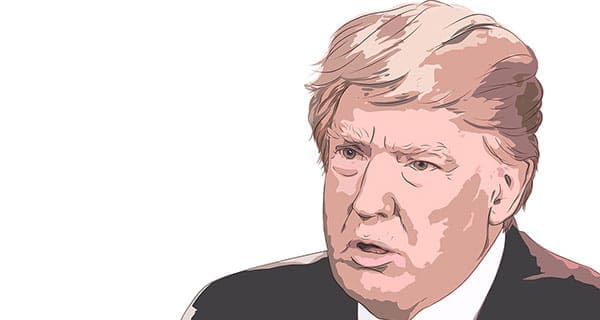 Does Donald Trump really want to be president of the United States?
Does Donald Trump really want to be president of the United States?
American presidential elections have always had a certain element of absurd theatre.
Two-plus years of gruelling campaigning finishes with a final sprint to the November general election. The backdrop is intense media scrutiny with an insatiable 24/7 news cycle seizing on any foible, slip-up or miscue.
Then there is the voluminous “opposition research” designed to ferret out every last action, comment or thought by a candidate that could offend, if not outrage, an electoral group.
Add to that the independent political action committees, followed by shadowy, hastily-formed single-issue organizations that function as the attack dogs, official and unofficial.
Finally, add the billions of dollars it takes to get elected, and how that money is raised from the tiny, Internet-aggregated contributions of scores of supporters, to the elite-only fundraising events, and the pools of dark money, and you have all of the elements for a Kafkaesque nightmare.
It’s a wonder that anyone would want to run – even if it’s the most glamorous, most powerful job in the world and it comes with great fringe benefits.
But even by these standards, the presidential election of 2016 belongs in a class by itself.
Four weeks from the general election, we are beyond the theatre of the absurd, the Kafkaesque surrealism, even the twilight zone. We are in a place where no one has been before.
Consider that Trump is openly criticizing his own party’s establishment. That scores of elected Republicans have denounced him and sworn to not vote for him.
America is being subjected to a never-ending stream of tawdry, misogynistic commentary gleefully seized upon by the liberal press and dismissed by Trump with a brief apology and a brush-off that it is only “locker room talk.”
In the meantime, there is a never-ending stream of hacked emails, tapes and other documentary evidence whose release violates scores of federal laws but is somehow countenanced as a legitimate search for the truth.
The Kremlin has been accused of trying to manipulate the electoral process by orchestrating Wikileaks’ stream of hacked emails. At the same time, Russian forces and their proxies seem intent on provoking the U.S. military. On Oct. 12, Russia went so far as to order its government officials abroad to repatriate their families to Russia, declaring it feared an impending nuclear exchange with the United States.
Not that Hillary Clinton, the Democratic candidate for the presidency, isn’t carrying her own substantial baggage. Rarely has a presidential candidate been surrounded by such widespread accusations of illegal behaviour, corruption and malfeasance.
Nonetheless, this theatre of the absurd does have an underlying logic.
First you put together a coalition of various political groupings in your party sufficient to triumph in the primary process. Between the end of the primary race and the convention, you consolidate your party base so that post-convention, you can zero in on those critical swing voters who will drive the margin of victory in the states that ultimately determine the election.
Over the summer, Trump seemed to follow that basic script, in his own unscripted way. Of late, however, his focus appears to be on reinforcing and solidifying his base of supporters. That base is a significant bloc but it will ultimately prove insufficient.
So is Trump looking to that base to give him a political victory or as a foundation for some new endeavour?
A number of Trump’s critics have argued that he is looking at his newly-energized base as the foundation of everything from a new political party to a new Fox-like news channel. Trump TV anyone?
Some have even argued that Trump never wanted the nomination and that he only ran to burnish his “brand value.” Add to that Trump’s claim that it was Bill Clinton who convinced him to run as a Republican and you have enough fodder for conspiracy theorists to run wild.
This is the strangest and most unpredictable election in a century. Its results are still opaque, the hyperactive polling notwithstanding, as each candidate campaigns in a minefield of damaging disclosures. Expect this roller-coaster ride to continue until the very end.
Joseph Micallef is a historian, best-selling author and, at times, sardonic commentator on world politics.
Joseph is a Troy Media contributor. Why aren’t you?
The views, opinions and positions expressed by columnists and contributors are the author’s alone. They do not inherently or expressly reflect the views, opinions and/or positions of our publication.


